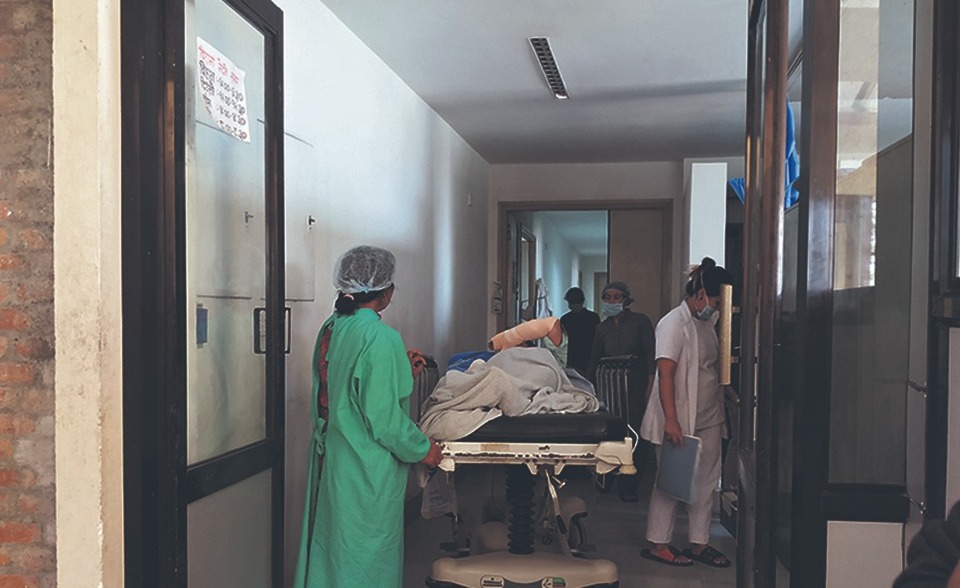
Representational Image
The cases of HIV/AIDS are increasing with each passing year in Jammu Kashmir, as a total of 6,305 patients have tested positive in the region from 1998 until October 2023.
A top health official informed the news agency Kashmir News Observer that 1,452 HIV-positive patients have died since 1998 until October 2023, while 3,583 patients are living on Anti-Retroviral Therapy (ART). He added that 521 patients have left follow-up.
He said that 5,154 cases of HIV have been reported at GMC Jammu, and among them, 1,274 have died, 470 have left follow-up, and 2,782 are living on ART.
Similarly, at SKIMS Srinagar, the number of patients registered in HIV care till October 2023 is 776, with 152 deaths, 35 leaving follow-up, and 473 living on ART, he added.
In ART Kathua, the number of patients registered in HIV care is 375, with 26 deaths, 16 leaving follow-up, and 328 living on ART.
The officials highlighted that due to social stigma, many people aren’t coming forward for HIV tests, and over the years, the number of patients infected has shown a rising trend.
Acquired Immunodeficiency Syndrome (AIDS) is a chronic, potentially life-threatening condition caused by the human immunodeficiency virus (HIV). By damaging the immune system, HIV interferes with the body’s ability to fight infection and disease.
HIV is a sexually transmitted infection (STI) and can also be spread through contact with infected blood or from mother to child during pregnancy, childbirth, or breastfeeding, as well as multi-person usage of needles. Without medication, it may take years before HIV weakens the immune system to the point of developing AIDS.
Officials said that a person suffering from AIDS is unfortunately often regarded as a stigma in society, and such individuals become victims of ostracism, rejection, and discrimination.
They also noted that J&K is at a greater risk of HIV/AIDS due to its status as a tourist destination, along with the presence of long-distance truck drivers, considered a vulnerable bridge population for HIV transmission, the heavy influx of migrant labourers, and the high concentration of security forces.
Most patients testing positive for HIV/AIDS in J&K have contracted the disease from outside the UT. “Drug addicts are at a higher risk of contracting HIV/AIDS, and if they are married or sexually active, they can transmit the virus to their partners as well,” they said.
The AIDS Project Cell was reconstituted as the JAMMU & KASHMIR AIDS CONTROL SOCIETY (JKSACS), registered under the Jammu and Kashmir Societies Registration Act, with effect from 14TH December 1998, to address the problem of AIDS more effectively.
Author Profile

Latest entries
 REGIONALApril 9, 2025‘Met Omar Abdullah by co-incidence at Tulip garden’: Rijiju clarifies
REGIONALApril 9, 2025‘Met Omar Abdullah by co-incidence at Tulip garden’: Rijiju clarifies Representational ImageREGIONALApril 9, 2025Udhampur Encounter: Inputs of 2-3 militants, Search operation continues
Representational ImageREGIONALApril 9, 2025Udhampur Encounter: Inputs of 2-3 militants, Search operation continues REGIONALApril 9, 2025For ‘better urban planning’, Admin launches demolition drive in Kulgam
REGIONALApril 9, 2025For ‘better urban planning’, Admin launches demolition drive in Kulgam Representational ImageREGIONALApril 9, 202525,400 cases of drug abuse reported in Jammu Kashmir since 2022
Representational ImageREGIONALApril 9, 202525,400 cases of drug abuse reported in Jammu Kashmir since 2022
